The 12 best brain foods for a healthy brain
A clinical dietitian shares the best brain foods that keep your brain healthy (and stomach happy!)
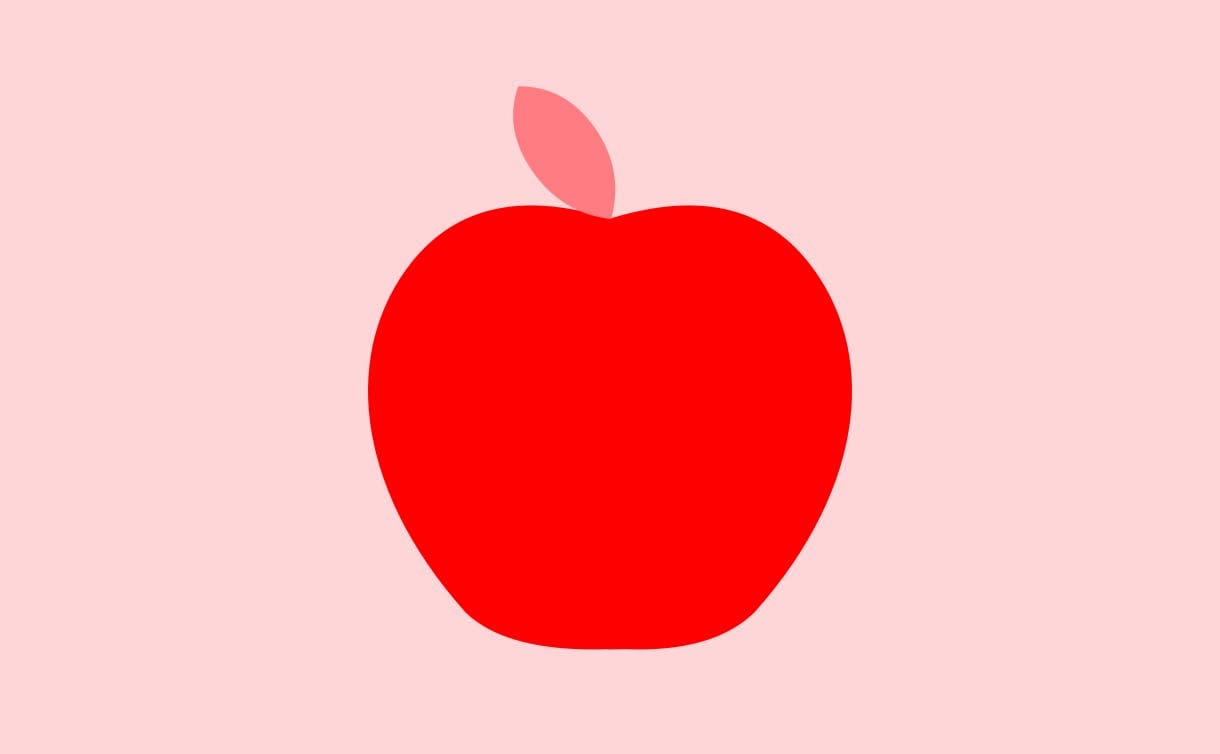

Using around 25% of the energy we receive from food, the brain takes some serious feeding. Whether you’re looking for the best brain foods for studying, or a long-term diet to preserve your grey matter, these 12 foods will help boost your brain health (all whilst keeping your stomach happy!).
What foods make your brain smarter?
Okay, so no diet will suddenly turn you into the next Einstien or Marie Curie, but there are certain foods that will help keep your brain healthy, and in turn boost your memory, focus, and concentration.
For optimal brain health, our Head of Nutritional Research, clinical dietitian Sophie Medlin, recommends following the MIND Diet (Mediterranean-DASH Intervention for Neurodegenerative Delay diet).
This brain-focused, NHS-backed diet has been formulated to provide your grey matter with the nutrients it needs to function at its best and protect against cognitive decline.
Food for your gut
When considering what foods are good for your brain, it’s also important to consider the impact of food on your gut, as gut health is directly linked to brain health. Be consistent with probiotic and prebiotic intake to foster a great gut microbiome to help with your overall brain health.
Incorporate either a probiotic supplement or fermented foods into your diet like sauerkraut, miso, or kimchi. Prebiotic foods—like bananas, garlic, asparagus, artichokes, soybeans, onions—can also help maintain a healthy gut microbiome, further boosting brain health.
The 12 best brain foods for focus, memory, and concentration
Taking inspiration from the MIND diet (and adding a treat or two), we’ve rounded up the 12 best foods for the brain.

Oily fish
When we think of the best foods for your brain, the first thing that springs to mind is oily fish like salmon, mackerel, or sardines—and for good reason. Oily fish is famous as a food for brain power because it’s a great source of omega 3 oils (both EPA and DHA)—fats which are invaluable to the brain. And, as the body can’t produce omega 3, it’s vital to consume enough through the diet.
In particular, oily fish is packed full of brain-essential DHA fatty acid, along with vitamin B12, selenium, and phospholipids. DHA makes up 90% of the omega 3 fat content of the brain. If your brain doesn’t get enough DHA, it isn’t able to carry out essential cell to cell signalling and other vital tasks as well as it could.
DHA is mainly found in the grey matter of your brain (and particularly in the frontal lobes)—so anything high in DHA will be one of the best foods that improve memory and information processing.
How much oily fish should you eat per week? To make sure you’re getting enough of this brain food, the NHS recommends eating two portions of fish per week, one of which should be oily.
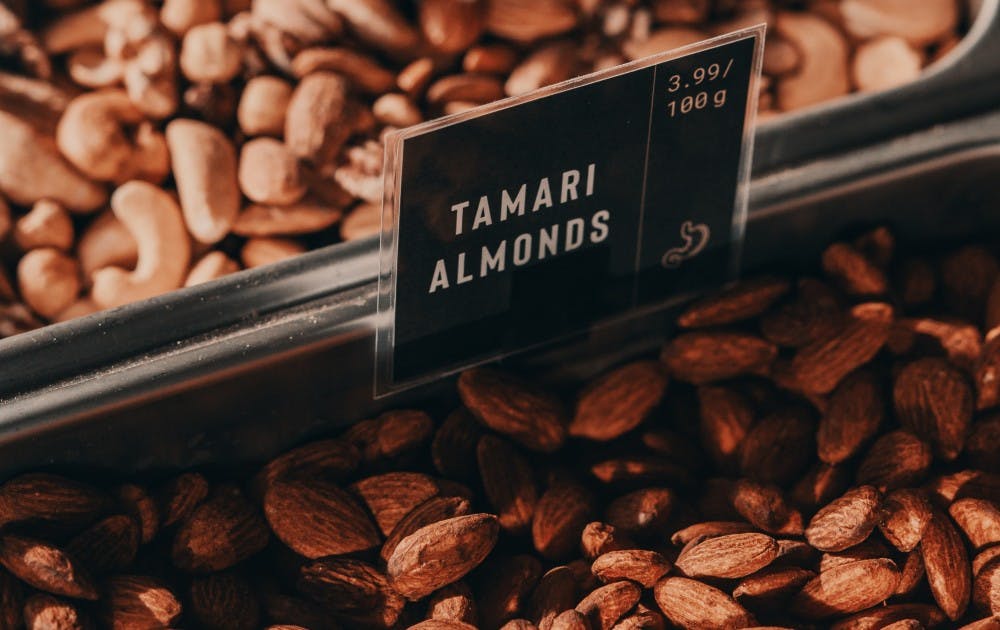
Nuts
Nuts provide a variety of brain health benefits, with different varieties offering different qualities.
Hazelnuts and almonds are good sources of vitamin E, which may help protect from age-related cognitive decline. Vitamin E helps protect brain cells.
Walnuts have high concentrations of omega 3 ALA, some of which converts into the brain-important omega 3 DHA and EPA. It is, however, a complicated process and nuts alone are not able to provide the required amount of DHA and EPA—you may wish to consider a high-quality supplement to make sure you get enough.
In a 2017 study, researchers found that regular consumption of nuts strengthened brainwave frequencies, which are associated with memory, healing, and learning. In the study, pistachios produced the greatest gamma response, which is essential for healthy cognitive function and learning and perception.
How many portions of nuts should I eat per week? Aim for five servings of nuts per week (one portion = 30g).
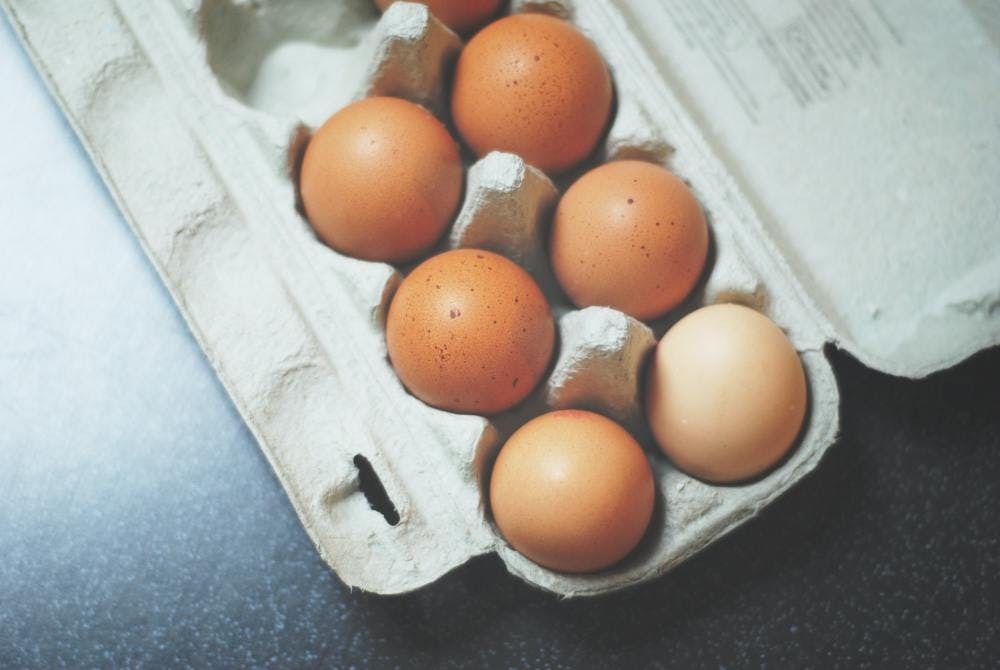
Eggs
Eggs are packed full of brain-healthy vitamins and nutrients, including vitamin B12 and vitamin D. So while they’re not included in the MIND diet, they’re an amazing food for brain health.
Vitamin B12 is essential for healthy nerve function and DNA production, as well as cell metabolism. It gives our neurons energy to communicate, helping us to maintain focus and concentration. This also makes it a brain food for studying. A deficiency of B12 is linked to mood disorders.
Vitamin D protects our brain from a build-up of deposits that lead to cognitive decline. Deficiency is common in the UK due to low levels of sun exposure in the winter months (in Heights’ recent vitamin deficiency study, more than 60% of participants were lacking even in the summer). Vitamin D deficiency is also associated with low mood and symptoms of depression.
The high-protein content of eggs also makes it one of the best foods for dopamine—encouraging production of the hormone by providing the essential amino acids tyrosine and tryptophan. Dopamine is great for memory, mood, and reward systems, and low levels are linked to decreased motivation.
How many eggs should I eat per week? The NHS states that there is no limit on the amount of eggs you should eat per week, but be careful about adding salt and fat.
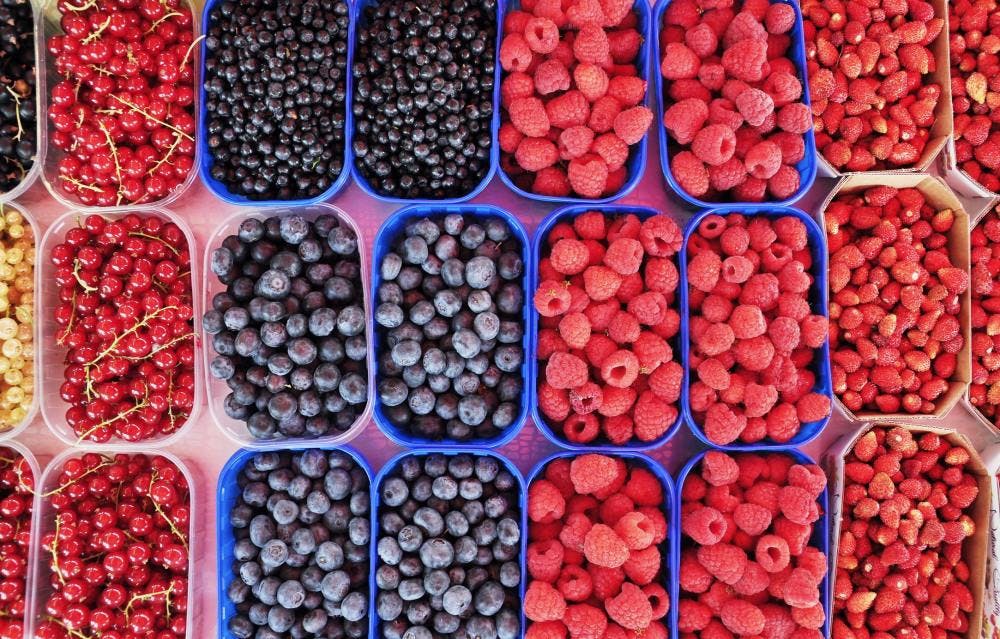
Berries
Not only do they taste delicious, but berries are also one of the best memory boosting foods and help improve concentration. In particular, blueberries are one of the best sources of anthocyanins, which combat decline in the brain by fighting free radicals (unstable molecules that can damage cells).
In one study, participants who drank blueberry juice for 12 weeks were found to have better blood flow to the brain and improvements in cognitive function than the group who drank a placebo.
Other berries are also important for healthy brain cells, including strawberries, which provide a source of vitamin C, an antioxidant that protects the brain.
How many portions of berries should I eat per week? To get the most out of this brain food, aim to eat berries at least five times per week (one portion = 80g).
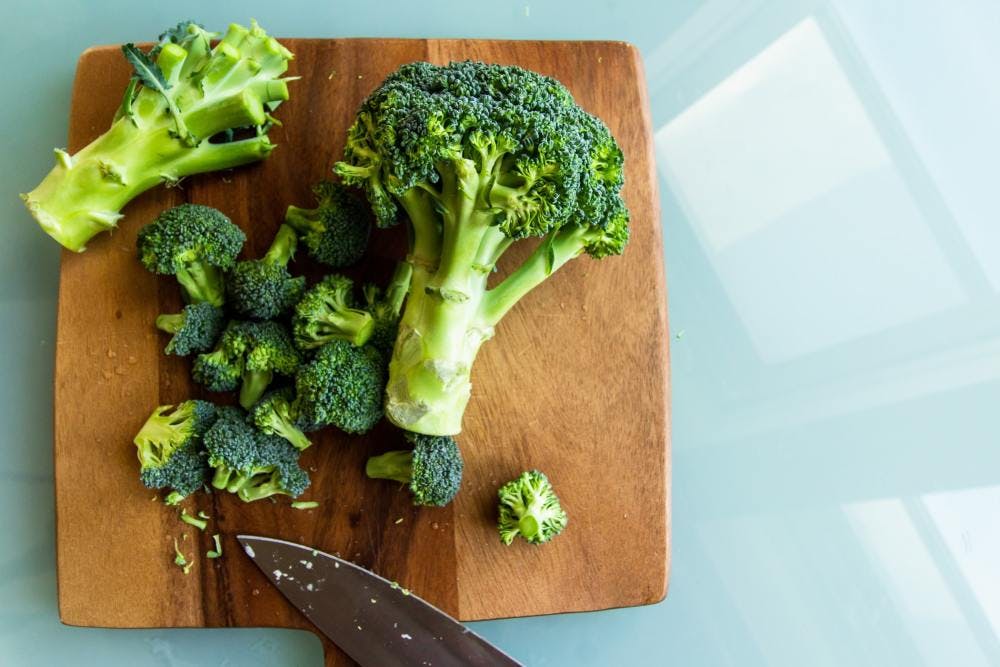
Broccoli
When eating your greens, broccoli should be top of the brain food list thanks to its levels of folic acid (folate), vitamin K, and antioxidants.
Folic acid is important for helping to regulate mood and protect the brain from age-related diseases. Folic acid is also key for regulating homocysteine, an amino acid of which high levels are linked to reduced cognitive function.
Antioxidants found in broccoli are also important for brain health, as—much like those found in blueberries.
How much broccoli should I eat for optimal brain health? Aim to eat five portions of green vegetables per week.

Dark chocolate
Eating brain-healthy foods doesn’t necessarily mean you can’t enjoy a few treats here and there. Thanks to its flavonoids and antioxidants, dark chocolate has a worthy spot on this list of brain health foods.
The higher the cocoa content in your chocolate of choice, the better, as cocoa is packed full of antioxidants, which help fight brain-damaging free radicals. Eating dark chocolate can also boost your mood as it stimulates the production of endorphins (the ‘feel-good’ chemical) and it contains serotonin, which improves mood.
For delicious and brain-healthy dark chocolate, check out this recipe.
How much dark chocolate should I eat? Aim for at least 70% cocoa content and enjoy as an occasional treat (we recommend no more than 20g a day).
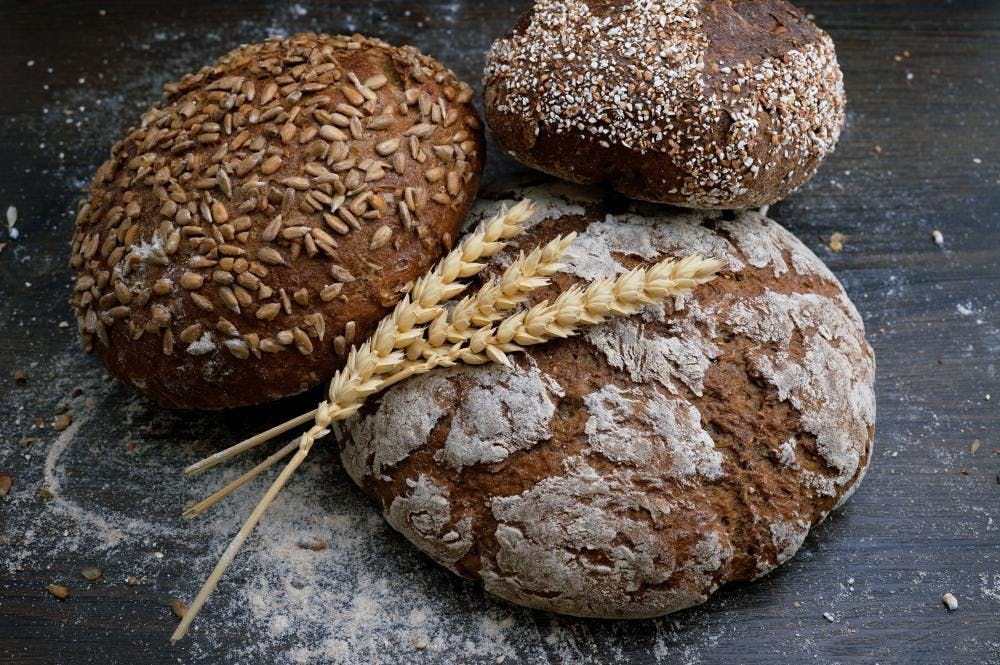
Whole grains
If brain fog is a problem, one answer could be to increase the number of whole grains in your diet. Thanks to the steady supply of energy they provide the brain, they’re one of the best foods for focus. This also makes it a great brain food for studying.
Recommended on the MIND diet, whole grains—such as oatmeal, quinoa, brown bread, brown rice, and wholewheat pasta—are good sources of nutrients including B vitamins, antioxidants, and trace minerals.
B vitamins are essential for brain health as they help combat inflammation in the brain, as well as providing the brain with energy to create new cells.
How many whole grains should I be eating per day? To make the most of this brain food, the MIND diet recommends three portions of whole grains per day.
Find out if you’re following the MIND diet here.

Olive oil
A main component of the Mediterranean diet, extra virgin olive oil is widely acknowledged as being good for your heart, but the benefits for your brain also mean that it can be classed as a brain food.
Extra virgin olive oil is packed with antioxidants, which can help fight against the damage of brain cells from free radicals. In a recent study, groups of mice were split into two, with one group fed a diet containing high levels of extra virgin olive oil, and the other not. The group which consumed the olive oil were found to have a 60% reduction of toxic deposits in the brain after six months.
Alongside this, extra olive oil is also rich in vitamin E—which protects brain cells from oxidative stress and studies have shown a link between high vitamin E consumption and better cognitive function.
How much extra virgin olive oil should I consume per week? According to the MIND diet, you should use it as your main fat source and aim to consume it at least five times a week.

Coffee
That 11am cup of Joe? It could actually have some brain health potential—as long as you stick to one or two cups a day, and only in the morning.
As you’ll know, coffee contains caffeine—but the energy jolt you feel is because it blocks adenosine (a chemical that makes you feel sleepy) in the brain. Coffee has also been linked to releasing mood-boosting hormones, such as serotonin.
How much coffee should I consume per day? No more than two cups of caffeinated beverages are recommended on the MIND diet, otherwise a potential brain food could start to have more negative effects than positive.
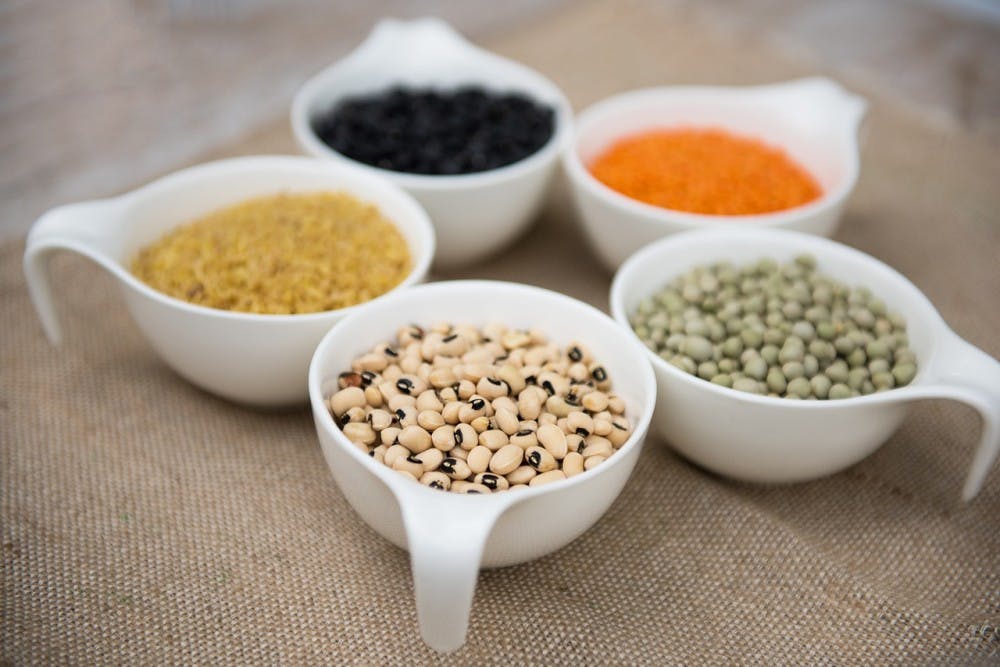
Legumes and pulses
Legumes and pulses are really good brain foods—rich sources of fibre, folic acid (vitamin B9), magnesium, iron, and thiamine (vitamin B1), depending on which variety you are eating.
Chickpeas and lentils, for example, have higher levels of folic acid—a vitamin that helps the body to process homocysteine.
Another example is soybeans, which are rich in iron. Iron is essential for the body as it allows the blood to transport oxygen, and a deficiency can lead to dizziness, and tiredness.
How many portions of legumes and pulses should I eat? Aim for five portions (one portion = 80 g) per week to get the most brain food benefits.

Wine
While perhaps a stretch to consider it a brain food, red wine is part of the MIND diet and can have some beneficial effects on the brain—as long as it is drunk in moderation.
The researchers that created the MIND diet included red wine due to its higher content of polyphenols—phytochemicals that have antioxidant properties (which help the brain to fight free radicals). However, in order to see any health benefits from red wine, it is important to stick to the guidelines, as drinking too much alcohol has a negative effect on brain health, with excess linked to damage to tissue cells and shrinkage of the brain.
How much wine should I drink per day? No more than one small glass of red wine a day is recommended.
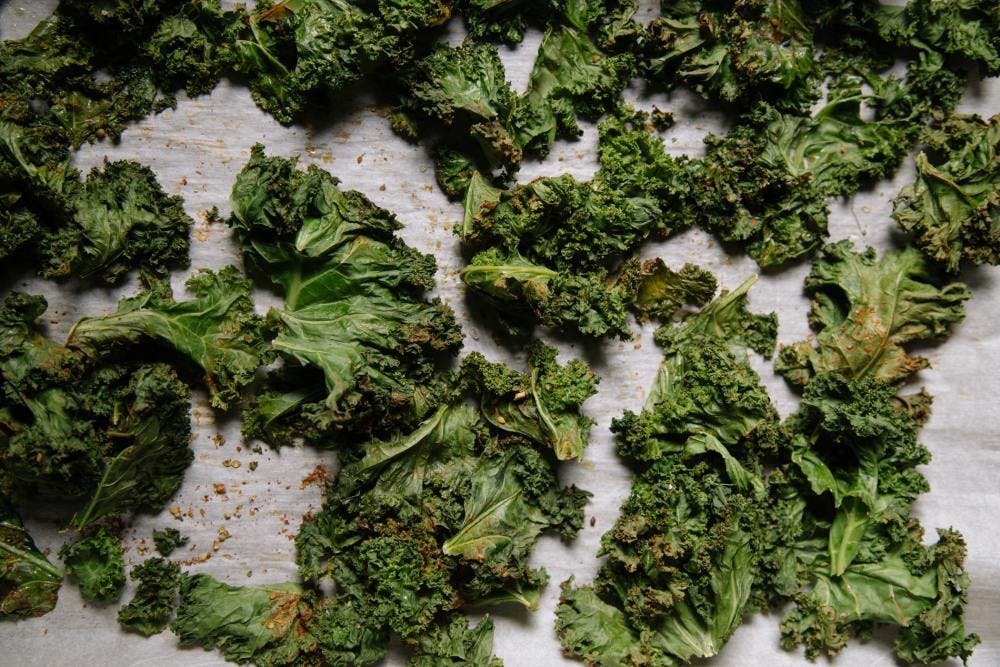
Dark leafy greens
Last but not least in the list of best brain foods—dark leafy greens. Dark leafy greens are abundant in vitamins that brains love, with spinach, kale, and swiss chard all providing the brain with vitamins E and K, folic acid, iron, and calcium.
Kale is incredibly nutrient-rich, with one 67g serving packed with vitamin K, vitamin A, and vitamin C. Both vitamin E and C are important antioxidants that help to protect the brain from oxidative stress caused by free radicals.
Spinach is another good brain food, as it’s a great source of iron, which is essential for blood cells to carry oxygen around the body.
How many leafy greens should I eat per week? Aim for five or more servings (one serving = 80g) per week.
Plant-based diet: What are 5 brain foods?
Many of these brain foods are suitable for a plant-based diet, for example, these 5 can be easily be included in vegan and vegetarian meals:
Nuts
leafy greens
legumes and pulses
whole grains
dark chocolate
For nutrients found in other animal-based brain foods, such as oily fish, you might wish to take a supplement. DHA and EPA omega 3s, for example, are notoriously difficult to get on a plant-based diet. Non-animal sources such as flax seeds consist of ALA omega 3 (which is more complex for the body to turn into DHA).
So, what is the best food for brain?
There is no one best brain food, but stick to a diet with appropriate amounts of these best foods for brain health, and you’ll be in a great place to start your braincare journey. And now that you’ve got an idea of brain foods, take a look at some of the other things you can do to create your very own braincare routine.